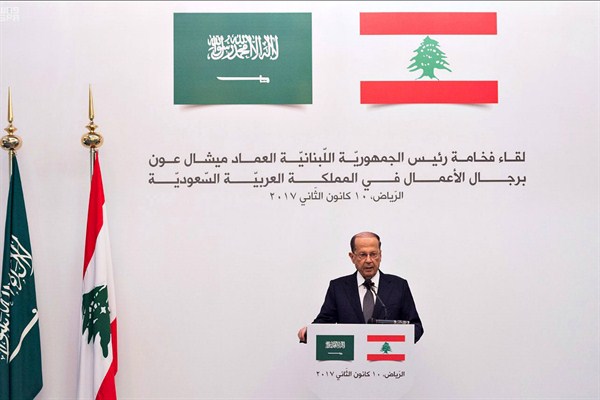On Oct. 31, Michel Aoun, a former Lebanese army general, was elected president of Lebanon, ending a 29-month-long crisis in which the country had no president, its institutions were paralyzed, and its economy risked collapse. After being voted into office with the support of 83 lawmakers—well over the 65 needed to win—the Christian leader and founder of the Free Patriotic Movement was shown smiling in his seat in televised broadcasts of parliament, as fireworks crackled across Beirut in celebration.
But the significance of Aoun’s election was not limited to the seat of the presidency. It marked the start of a new era in Lebanon’s notoriously fractious politics.
Up until the election, Nabih Berri, the speaker of parliament, had convened 45 sessions to elect a president, but was forced to postpone every one due to a lack of a quorum. The fact that lawmakers showed up at all on Oct. 31 meant Aoun’s win had been secured long before they were ushered into parliament. In Lebanon’s power-sharing confessional system, the presidency is reserved for a Maronite Christian.

